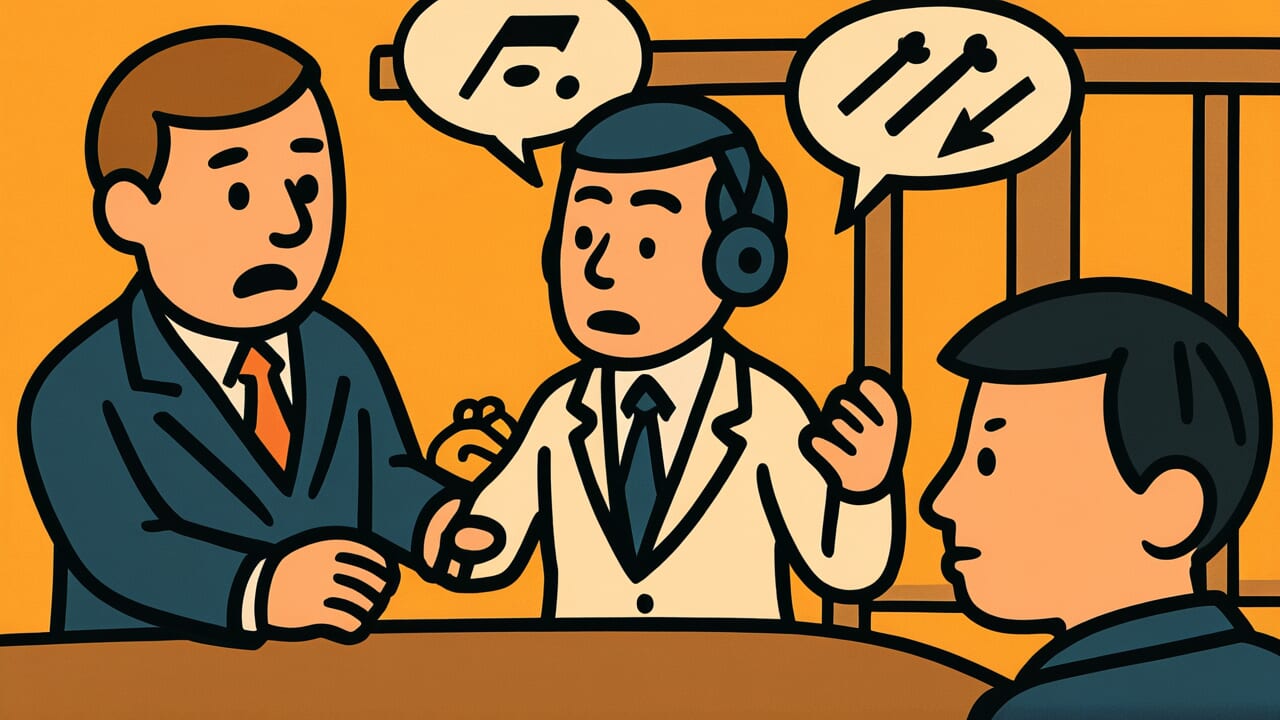How to Read “An unlearned person does not lose in argument”
Higakusha ron ni makezu
Meaning of “An unlearned person does not lose in argument”
“An unlearned person does not lose in argument” means that even people without formal education can hold their own against scholars in debates.
This doesn’t deny the value of education. Instead, it shows that persuasiveness in arguments doesn’t depend only on academic knowledge.
Wisdom gained from real-life experience matters greatly. The ability to see the essence of things counts too.
The skill to convince others plays a huge role. These non-academic elements often give people great power in debates.
Sometimes simple words that hit the core truth move people’s hearts more than complex theories. Clear language can be more powerful than difficult academic terms.
This proverb encourages people without formal education. It also warns those who rely too heavily on academic learning.
The real lesson is this: what matters isn’t how much you know. What matters is how you use knowledge and communicate it to others.
Origin and Etymology
The exact origin of this proverb in historical texts remains unclear. However, we can learn much from examining how the words are constructed.
“Higakusha” means “a person without formal learning.” “Ron ni makezu” means “does not lose in argument.”
During the Edo period, education was mainly limited to the samurai class. Some wealthy merchant families could also afford schooling for their children.
Yet in actual society, educated people didn’t always win arguments. Craftsmen and merchants with real-life experience often had practical wisdom and speaking skills.
These experienced people sometimes defeated scholars in debates. This happened quite often, in fact.
This proverb likely emerged from observing this social reality. People witnessed daily the difference between academic learning and practical knowledge.
They saw the gap between book knowledge and life wisdom. Scholars sometimes made arguments that were theoretically correct but didn’t work in real life.
When experienced common people gave sharp counterarguments, many others felt the same way. These moments resonated deeply with people’s own experiences.
The proverb captures a fascinating truth about human society. Having education and being strong in arguments don’t always go together.
Usage Examples
- That craftsman truly showed that an unlearned person does not lose in argument when he confidently stated his opinions to the university professor
- He has no academic degree but rich field experience, making him a perfect example of an unlearned person does not lose in argument
Universal Wisdom
“An unlearned person does not lose in argument” reveals a deep truth about the diversity of human intelligence.
We tend to measure people’s abilities by their knowledge or education level. But actual human society is far more complex than that.
Strength in arguments comes from many combined factors. Knowledge matters, but so do experience, intuition, empathy, and expression skills.
An educated person might say something theoretically correct. But if it’s disconnected from reality or doesn’t touch people’s hearts, it lacks persuasive power.
Meanwhile, someone without formal education who knows life’s ups and downs can speak words that carry more weight than scholarly theories.
This proverb has been passed down through generations because people have witnessed this truth repeatedly. Merchants in marketplaces, farmers in fields, craftsmen making tools.
They learned wisdom not from books but from practice. With this wisdom, they sometimes defeated authoritative scholars in arguments.
Human intelligence cannot be measured by a single standard. This is a universal truth that applies to any era.
Education is important, but it’s not the only form of intelligence. This recognition forms the foundation of a society where diverse people respect each other.
When AI Hears This
Looking at debates between scholars and non-scholars as an information game reveals an interesting reversal phenomenon.
Scholars possess vast knowledge, but this actually works as “noise from information overload.”
Suppose a scholar has ten supporting arguments. In a debate, they need to convey all ten to their opponent, make them understand, and convince them.
But human cognitive processing has limits. As information increases, the persuasive power of each piece gets diluted.
Psychology recognizes a phenomenon where “too many choices prevent decision-making.” The same applies to arguments.
Ten pieces of evidence become noise for listeners. They can’t tell “which one is truly important.”
Meanwhile, the non-scholar has limited knowledge. So they strike at just one or two core points they’re certain about.
This “high signal-to-noise ratio” demonstrates real power. The listener’s brain processes clear arguments more easily and remembers them better.
In game theory, having more information doesn’t guarantee advantage. What determines victory is whether you can convey information in a form your opponent understands.
In the game of debate, the victory condition isn’t the “quantity” of information but “transmission efficiency.”
A scholar’s abundant knowledge is a weapon in academic papers. But in oral debates, it ironically becomes a burden. This is the paradoxical structure at play here.
Lessons for Today
This proverb teaches modern people not to underestimate their own strengths. Just because you lack academic credentials doesn’t mean your opinions have no value.
Your lived experience, accumulated practice, and insights gained from them are precious assets no one else can replicate.
Modern society tends to overvalue expert opinions. But theories from specialists who don’t know the actual field sometimes don’t fit reality.
In such cases, voices from the field matter most. User perspectives and lived experiences hold the key to solving problems.
What’s important is developing the ability to communicate your experiences and thoughts clearly and logically.
You don’t need to use difficult words. In fact, speaking about the essence in language anyone can understand is true persuasive power.
At the same time, this proverb teaches humility. People with education should learn from field wisdom.
Experienced people should also recognize the value of systematic knowledge. When we acknowledge each other’s strengths, richer discussions emerge.



Comments